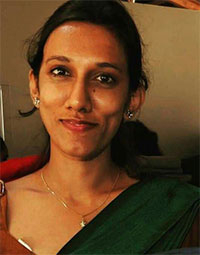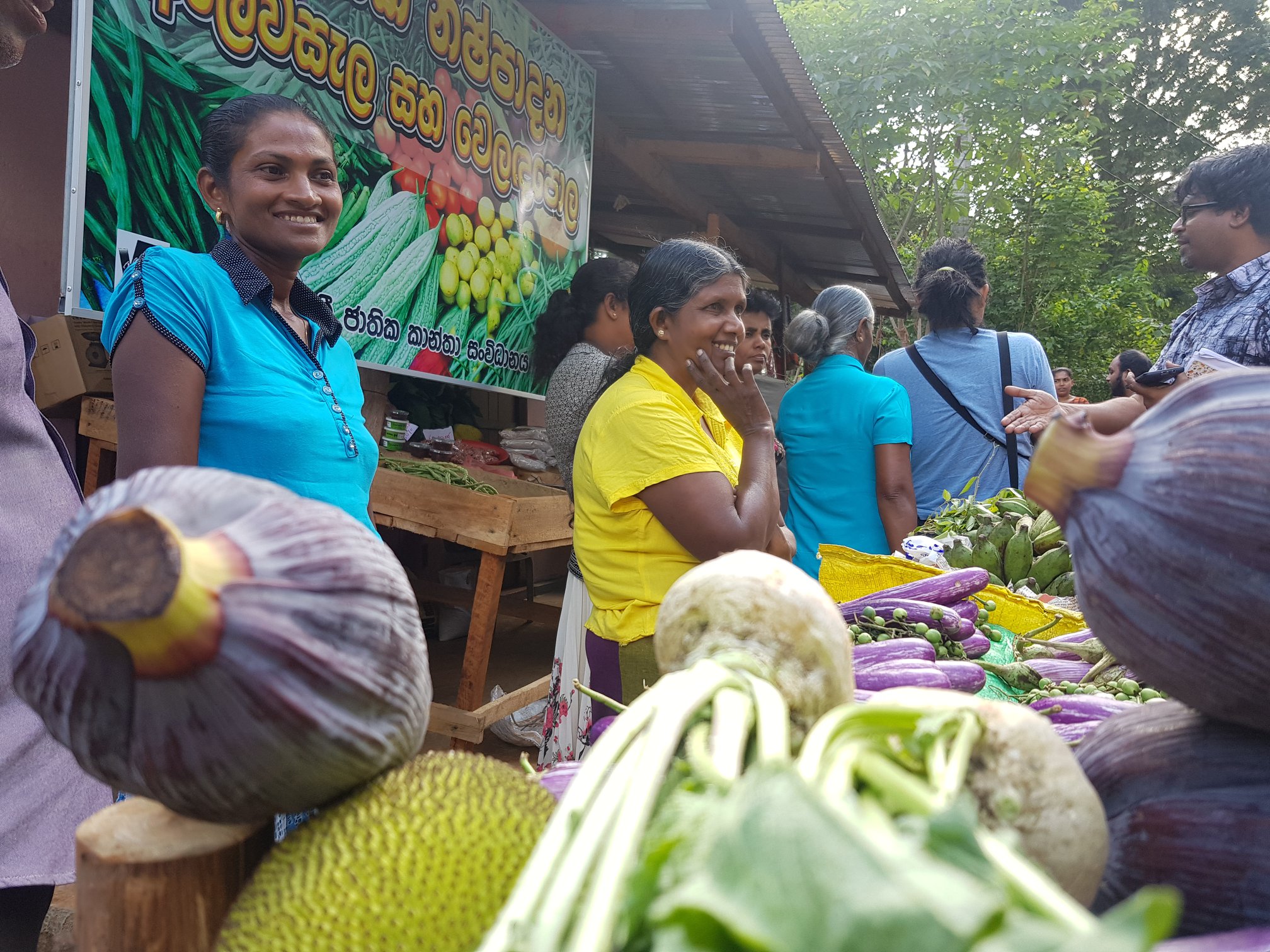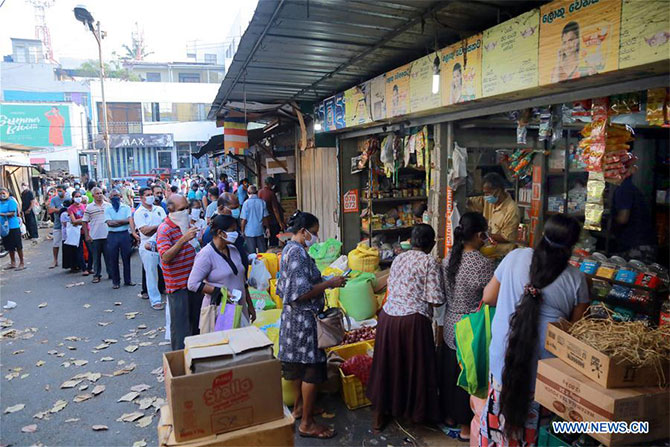 Food And Rights Talk is a series of interviews with PAN Asia Pacific (PANAP) partners across the globe to find out the situation of rural peoples, in relation to food security and human rights, amid the COVID-19 pandemic.
Food And Rights Talk is a series of interviews with PAN Asia Pacific (PANAP) partners across the globe to find out the situation of rural peoples, in relation to food security and human rights, amid the COVID-19 pandemic.
To find out the situation in Sri Lanka, we talked to Chathu Sewwandi, project coordinator of Vikalpani Women’s Federation. Vikalpani is a NGO working with rural women for enhanced living standards, protection of the environment and asserting food sovereignty.
PAN Asia Pacific (PANAP): How has the COVID-19 pandemic affected farmers in Sri Lanka?
Chathu: The general situation here is that we are on lockdown. Some districts are open, but they suddenly closed because of the recent rise in COVID-19 cases. There’s a curfew and people can’t move around. The government has told farmers that they can continue with their agricultural activities. But farmers have limited access to markets. Usually farmers have diverse markets, but with this situation, they can’t reach their usual markets. Usually the middleman comes to them and collect the fruits and vegetables. Now, the middlemen have problems with transportation facilities, and have to ask for special permission. Especially the upper country farmers, they can’t sell their harvest at a fair price. Government has this program to assure continuous food supply to consumers, but there are a lot of difficulties. Many farmers are unable to harvest. Some of their produce—such as pumpkin, beets—were instead burned or distributed locally free of charge.
PANAP: How is the food security situation in the urban areas?
Chathu: The Sri Lanka government has a special program in coordination with government markets and cooperative societies. They started some distribution channels—the government gave out some numbers and people can call and order what they want. The thing is, it is only possible for people who have money. But people who live in slums, and those who earn daily wages, they are facing a lot of difficulties. So recently the government gave out 5,000 Rs for individuals to purchase what they need. This aid is distributed through local officers. But it is not enough, because Colombo and other urban areas are still totally closed and therefore people are facing a lot of livelihood issues.
But there are a lot of positive things as well. People are turning to home gardening and seeking a lot of strategies and methods on how they can manage their space for gardening, to cultivate the fruits and vegetables that they need. People are enthusiastic about it. There are also some programs led by NGOs and voluntary organizations. In general, people collectively look out for each other. They collect food and distribute them to daily wage earners and other poor people.
PANAP: Would you say that people are going hungry?
Chathu: We don’t have the worst situation where people have nothing to eat. But I don’t know what will happen in the near future. If the situation prevails, people will go hungry. Especially people who don’t have their own space or access to land for cultivation, and those who are earning daily wages.
PANAP: Agricultural workers are among those who don’t have land. What is their situation?
Chathu: Some plantation workers are out of work. They are facing difficulties because they don’t have their own land to cultivate. They only stay in small houses in tea estates. If our export system collapses with this COVID-19 situation, and we can’t export as much tea and rubber as we used to, then it will directly affect these workers.
Garment exports are also affected. Most village women work in garments factories. Nowadays they receive only half of their salary or none at all. European countries are not ordering that much—consumer patterns have changed, they don’t go out to buy clothes as much. So as a country that depends a lot on exports, we need to think about this.
PANAP: Can you tell me more about the situation of rural women?
Chathu: In Monaragala where I live, most women are daily wage earners. With this COVID-19 pandemic, they are not called to work, especially if there are local movement restrictions. For example, I’m working with this society of rural women that had to stop production. Usually they produce handicrafts, garments, and food products. Now these women can’t, they are calling me up and asking me what to do. So rural women face a lot of problems.

PANAP: Do people have access to adequate healthcare and testing?
Chathu: In Sri Lanka, the program to identify COVID-19 patients is very good. Medical officers do inspections at the village level, observing people. If there is a suspected COVID-19 case or someone had contact with a suspected case, medical officers go their homes and ask people to go on quarantine or send them to quarantine camps. They are continuously doing COVID-19 tests—some university students are developing machines for local testing. Medical service is also totally free. People can go to the government hospitals and everything will be supplied free of charge.
But we were not ready for this situation, and had limited Personal Protective Equipment in hospitals. Because of that, we began to produce them locally. Garment workers started to produce PPE, and hospitals ordered from them. Government also now directly purchases PPE from community groups. I am not saying we have enough, we still have a lot of shortages in rural hospitals. And if the situation continues, there will be more shortages. We don’t have enough materials and have to import them from China.
PANAP: Vikalapani, your organisation, is promoting agroecology. In these times, do you think that farmers who are practicing agroecology have an advantage over those who are not?
Chathu: Yes, definitely. Farmers doing conventional farming have to depend on chemical inputs. In a situatuon like this, they don’t have access to that anymore. Also the economic costs—most don’t have enough money to invest on chemical inputs since don’t have much savings. Here in Monaragala, we have 50 women who practice agroecology. They make their own organic fertilizers and inputs. The pandemic does not affect what they’re doing and in fact increases the demand for it. Because they are making organic inputs, and people are seeking fertilizers for their farmlands. We also started a local farmers market. A lot of people come to these markets because they can’t go to the big markets and they have to depend on village-level markets.
So this is a very good opportunity to make them understand the need for agroecology. Now people are starting to believe in a self-sufficient system, and are starting to change their consumption patterns. A lot of people are now interested in organic home gardening. So recently we started a website where we share our knowledge through videos and photos. I think it’s a very good opportunity to teach others and spread what we as rural communities believe in. They come to our women for advice, and we share what we can in our capacity.###








Discussion about this post